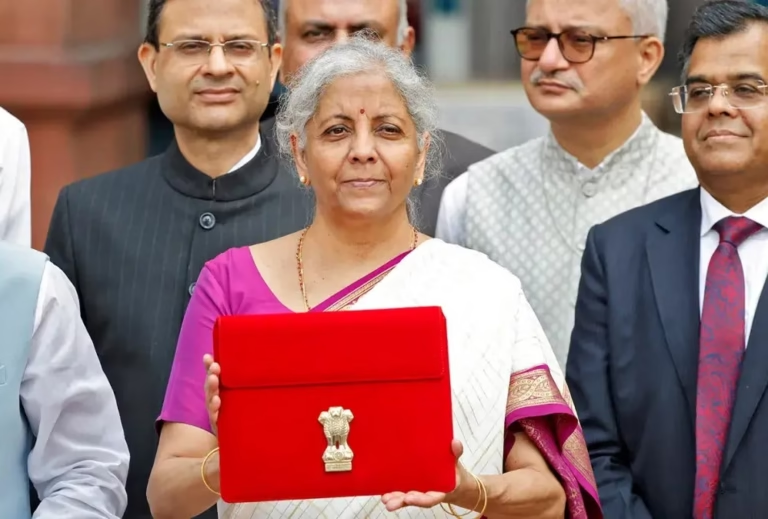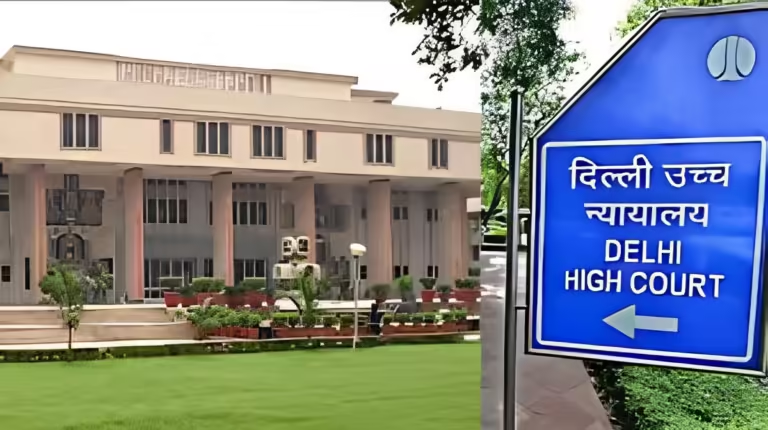Air Transport Corporation (Assam) Pvt. Ltd. vs. State of U.P. & 3 Others - Allahabad High Court (5 January, 2018)
Services
Business Incorporation & Compliance
Registration & Certification Services
GST Advisory & Compliance
Income Tax Advisory & Compliance
Accounting and Payroll Services
Audit & Assurance Services
International Tax Services
UAE Business Services
Financial Insights
Detailed Summary of CBIC Instruction No. 03/2025-GST
Union Budget 2025: Goods and Services Tax Comprehensive Overview
Union Budget 2025: Direct Tax Comprehensive Overview
Detailed Summary of Recommendations from the 54th GST Council Meeting
Court: High Court of Allahabad
Case No.: Writ Tax No. 829 of 2017
Date: January 5, 2018
Coram: Hon’ble Ms. Justice Bharati Sapru and Hon’ble Mr. Justice Neeraj Tiwari
Petitioner: Air Transport Corporation (Assam) Pvt. Ltd., represented by Mr. Suyash Agarwal
Respondents: State of Uttar Pradesh & 3 Others, C.S.C., A.S.G.I. represented by Mr. Manish Goyal, Additional Advocate General, assisted by Mr. C.B. Tripathi, Standing Counsel for the State.
Introduction:
In this case, M/S Air Transport Corporation (Assam) Pvt. Ltd. filed a writ petition against the State of Uttar Pradesh and its officials challenging the issuance of a notice under Section 129(3) of the Uttar Pradesh Goods and Services Tax (UPGST) Act, 2017 and an order directing the petitioner to deposit a penalty in excess of 50% of the value of goods in transit. The petitioner contended that the imposition of the penalty was in violation of Section 129(1)(b) of the UPGST Act, 2017.
The petitioner also sought a writ of mandamus directing the respondents to release the goods and the vehicle seized under a memo dated November 22, 2017, upon furnishing security as per Section 129(1)(b) of the Act.
Facts of the Case:
- Seizure of Goods:
On November 22, 2017, the petitioner’s goods, which were being transported by a truck (bearing registration No. U.P. 21 BN 5211), were seized by the authorities under a seizure memo. The goods were being transported under the provisions of the UPGST Act, 2017. - Notice and Order under Section 129:
Following the seizure, the petitioner was served with a notice dated November 22, 2017, issued under Section 129(3) of the UPGST Act, 2017. Subsequently, on November 30, 2017, an order was passed by the respondent authorities under Section 129(3) of the Act, directing the petitioner to deposit a penalty amounting to more than 50% of the value of the goods. The petitioner argued that this penalty exceeded the provisions outlined under Section 129(1)(b) of the Act. - Challenging the Penalty:
The petitioner challenged the penalty imposed, contending that under Section 129(1)(b) of the UPGST Act, the authorities are only allowed to impose a penalty of 50% of the value of the goods, reduced by the amount of tax already paid. The petitioner claimed that the imposition of a higher penalty was illegal and sought relief from the court. - Mandamus for Release of Goods:
Along with challenging the penalty, the petitioner requested a writ of mandamus directing the respondents to release the goods and vehicle seized under the memo dated November 22, 2017. The petitioner offered to furnish security for the applicable tax and an additional penalty of 50% of the value of the goods, as permitted under Section 129(1)(b) of the UPGST Act.
Legal Provisions Involved:
- Section 129 of the UPGST Act, 2017:
- Section 129(1)(b): Provides that, in cases where the owner of the goods comes forward, the goods in transit may be released upon payment of the applicable tax and a penalty equal to 50% of the value of the goods, reduced by the tax already paid.
- Section 129(3): States that the proper officer shall issue a notice specifying the tax and penalty payable and pass an order for payment within seven days of the issuance of the notice.
- Section 107 of the UPGST Act, 2017:
Provides a statutory remedy for the aggrieved party to file an appeal against any order passed by the adjudicating authority, including orders under Section 129. This section also requires the appellate authority to hear and dispose of the appeal in accordance with the law. - Rule 109A of the UPGST Rules:
This rule governs the procedure for filing an appeal against orders passed under the UPGST Act.
Arguments of the Petitioner:
- Excessive Penalty:
The petitioner argued that the penalty imposed by the respondent authorities under Section 129(3) was excessive and in contravention of Section 129(1)(b) of the UPGST Act. The petitioner contended that the authorities were only allowed to impose a penalty of 50% of the value of the goods, reduced by the tax already paid, and any amount beyond this was unlawful. - Alternative Remedy:
While filing the writ petition, the petitioner acknowledged that an alternative statutory remedy was available under Section 107 of the UPGST Act, allowing them to appeal the order dated November 30, 2017. However, due to the urgency of the matter, they sought immediate relief from the court.
Arguments of the Respondents:
- Availability of Appellate Remedy:
The counsel for the respondents, led by Mr. Manish Goyal, argued that the petitioner had an efficacious statutory remedy available under Section 107 of the UPGST Act to appeal the impugned order. They informed the court that the appellate authority had been duly constituted by the State on November 24, 2017. - Procedural Compliance:
The respondents contended that the penalty imposed was within the scope of the UPGST Act and was based on the petitioner’s non-compliance with the provisions governing the transportation of goods.
Court’s Analysis:
- Existence of Alternative Remedy:
The court acknowledged that the petitioner had a statutory right to file an appeal under Section 107 of the UPGST Act. Given the availability of this alternative remedy, the court found that the writ petition need not be entertained on merits at this stage. - Direction to File Appeal:
In light of the alternative remedy, the court directed the petitioner to file an appeal before the appellate authority within one week from the date of the order. The court further directed that the appeal should be disposed of within one month from the date of filing, ensuring a timely resolution of the matter. - Release of Vehicle:
Despite the pendency of the statutory appeal, the court provided interim relief to the petitioner by directing the immediate release of the vehicle (Truck bearing Registration No. U.P. 21 BN 5211) that had been seized by the respondents. The court ordered that the vehicle be released without demanding any security from the petitioner, facilitating the petitioner’s business operations while the appeal was being heard.
Court’s Judgment:
- Writ Petition Disposed Of:
The court disposed of the writ petition, directing the petitioner to file an appeal against the order dated November 30, 2017, under Section 107 of the UPGST Act, within one week. The appellate authority was instructed to hear and decide the appeal within one month from the date of filing. - Vehicle Release Ordered:
The court also directed the respondents to release the seized truck immediately, without demanding any additional security from the petitioner. - No Costs:
The court concluded the proceedings without awarding any costs to either party.
Conclusion:
The Allahabad High Court, while addressing the petitioner’s challenge to the excessive penalty imposed under Section 129(3) of the UPGST Act, emphasized the availability of an alternative statutory remedy under Section 107. Although the court did not delve into the merits of the petitioner’s claim regarding the excessive penalty, it provided interim relief by directing the release of the seized vehicle. The court’s directions ensured that the petitioner could pursue an appeal while maintaining its business operations.
Read More Insights

Union Budget 2025: Direct Tax Comprehensive Overview
Union Budget 2025: Direct Tax Comprehensive Overview Home Insights Union Budget 2025: Direct Tax Comprehensive Overview Services Business Incorporation & Compliance Company Registration LLP Registration

Napin Impex Private Ltd. vs. Commissioner of DGST, Delhi & Ors. – Delhi High Court (28 September, 2018)
Napin Impex Private Ltd. vs. Commissioner of DGST, Delhi & Ors. – Delhi High Court (28 September, 2018) Home Insights Napin Impex Private Ltd. vs.

Manappuram Finance Ltd. vs. Union of India & Ors. – Kerala High Court (29th July 2024)
Manappuram Finance Ltd. vs. Union of India & Ors. – Kerala High Court (29th July 2024) Home Insights Manappuram Finance Ltd. vs. Union of India
